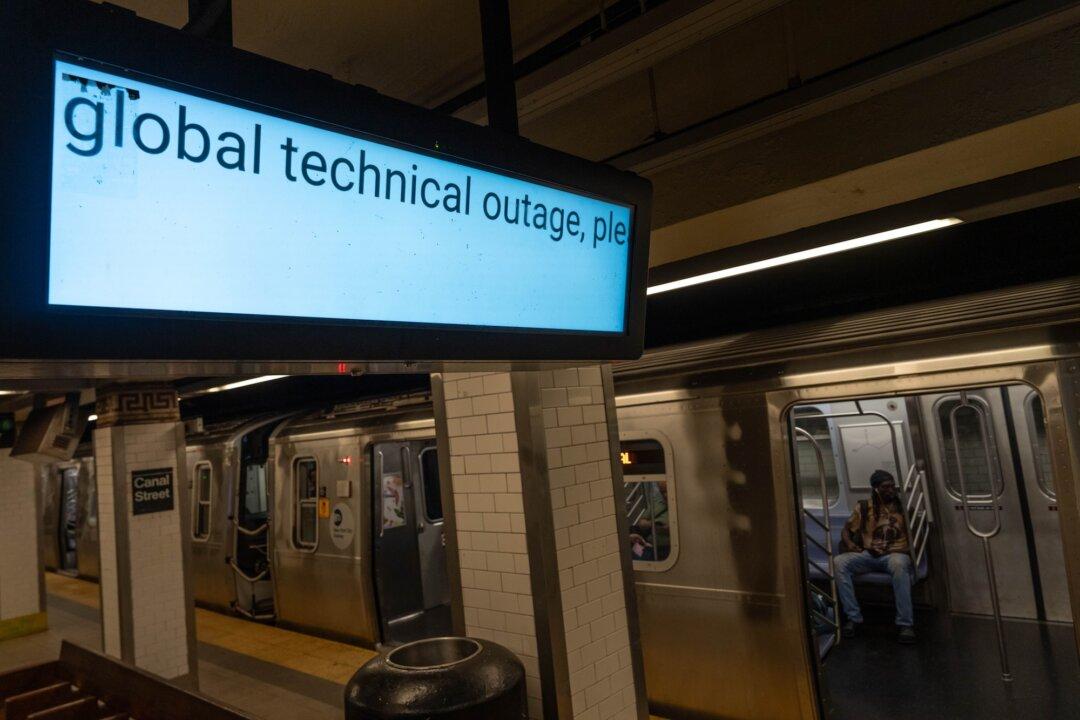A senior executive at the cybersecurity firm CrowdStrike apologized during a congressional hearing on Sept. 24 for a faulty software update that caused a worldwide IT outage in July.
Adam Meyers, senior vice president for counter-adversary operations at CrowdStrike, issued the apology during a hearing before the House Homeland Security Cybersecurity and Infrastructure Protection subcommittee.




